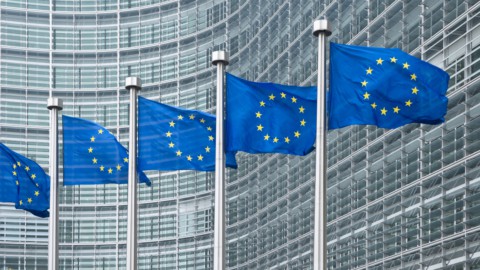As e-invoicing is a complicated and multi-faceted topic, keeping track of the myriad of different and constantly changing regulations across Europe is no simple task. Although gaining the ability to send structured electronic documents comes with many benefits to businesses (particularly relating to time and cost savings), if the wrong approach is taken, these benefits will be minimal.
The following are three key practical steps you can take to ensure e-invoicing processes are as successful as possible for your business.
1 – Have a clear plan in place
A recent study by MIT Sloan and Capgemini indicated that despite 90% of CEOs believing that the digital economy will affect their industry, just 15% of them have a digital strategy in place at all – let alone a strategy for e-invoicing processes. Unfortunately, most businesses are only prompted to act when required to by a large trading partner or new legislation. Unfortunately, the time pressure in such situations typically leads to a rushed decision-making process during which an ill-fitting or non-future-proof solution is opted for.
By taking the time to assess your company’s current and future e-invoicing and document exchange needs and developing a realistic plan, you are far more likely to end up with a successful solution and future-proof e-invoicing processes.
2 – Clean up master data
The accuracy and reliability of your business’s master data is crucial to successful automated document exchange. As a result, tidying up master data is always the first step when establishing a connection to trading partners.
Ensuring your master data is in order in advance of future partner onboardings (be they B2B or B2G) will streamline the process and help to ensure you can experience the benefits of a reliable connection sooner.
To learn more on what a master data synchronisation process involves and how it can benefit you, read our article “What is Master Data Synchronisation and Why is it Needed?” on this topic.
3 – Don’t try to do too much yourself!
Sadly a wealth of internal resources – particularly when it comes to IT – is a luxury very few businesses enjoy. Despite this, many organisations attempt to keep management of key B2B processes such as e-invoicing in-house. Unfortunately, however, for a successful outcome to be achieved, technical expertise is required during all parts of the connection process, from set-up to monitoring. When the need to stay on top of constantly changing regulations is factored in too, managing e-invoicing connections in-house becomes a daunting task – particularly for those with other responsibilities or without EDI experience.
An experienced and capable provider can simplify e-invoicing processes (and EDI processes more generally) hugely. As well as relieving pressure on internal teams, a good provider should be able to safeguard key business processes for the future too, by helping to establish, test and monitor connections.
Want more information?
This article is taken from a section in our white paper “E-invoicing in Europe: State of Play”. In this comprehensive white paper we look in detail at current e-invoicing regulations across Europe, Peppol, the future of e-invoicing and how to stay on top of changing requirements.
Download your free copy of “E-invoicing in Europe: State of Play”, simply submit your details.
Alternatively, if you have any questions about your particular situation or anything else EDI or e-invoicing related, feel free to get in touch! We are always happy to help!













